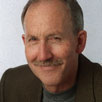“And in this age of political segregation, that ‘us’ versus ‘the fringe’ is often based on geography. The Nebraskans all agreed, Theiss-Moore said: ‘Those people in California are really weird’.”
-From the new book, “The Big Sort,” by Bill Bishop (with sociologist Robert Cushing).
This is the state of our union. Whether we are selecting a church, a news source, a TV show or a place to live, Americans increasingly want to be around people who are like them, people who will validate what they believe is true and important.
And the most skilled politicians are succeeding by finding ways to exploit the anger and resentments spawned by these tribal instincts.
These are the big ideas to be gleaned from two new books: “The Big Sort – Why the Clustering of Like-minded Americans Is Tearing Us Apart” and “Nixonland – The Rise of a President and the Fracturing of America.”
With these books in mind, my Sunday column considers why Woodstock, N.Y. and Sebastopol, California will not be confused with Topeka, Kansas, and Omaha, Nebraska.
Why is this important? Here’s Bishop in “The Big Sort”:
“Maybe the logic of the Big Sort is that there’s no longer a national narrative to follow, no longer a communal path to unanimity. (Americans have so little in common that even television quiz shows are having a hard time coming up with questions that make sense to contestants and a broad audience.) Baby Boomers, right and left, have tried to imprint on others their version of the American story and will apparently battle to their graves to impose their will on the country.”
In “Nixonland,” historian Rick Perlstein describes “two groups of Americans, staring at each other from behind a common divide, each equally convinced of its righteousness, each equally convinced the other groups was defined by its evil.”
On such a landscape, how does a nation find common ground again?

 Pete Golis is a columnist for The Press Democrat and a longtime resident of Sonoma County.
Pete Golis is a columnist for The Press Democrat and a longtime resident of Sonoma County.